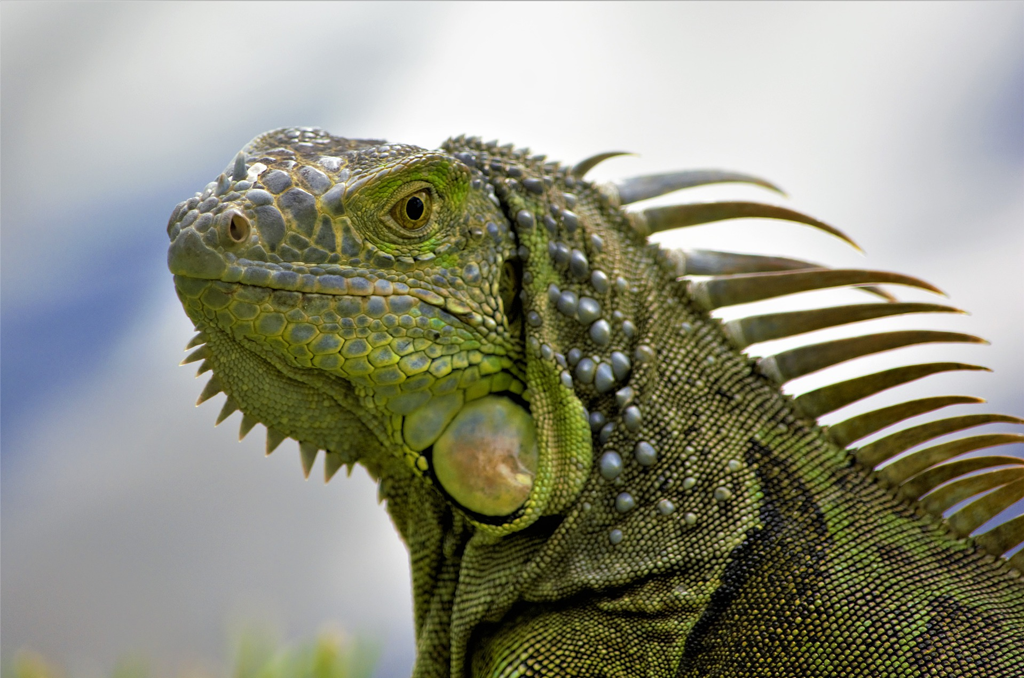Green Iguana – Courtesy: Image by Scottslm from Pixabay
In a unanimous vote Thursday, the Florida Fish and Wildlife Conservation Commission voted on a new set of rules that would ban the commercial breeding practice and ownership of 16 “high-risk” reptiles in the state.
The rule would allow current high-risk reptile owners to keep the lizards and snakes in their possession until they were to pass away, but would ban them from owning any new ones after that. The problem is that many biologists and ecologists deem these reptiles as risks to the natural landscape of the state and its inhabitants, while the owners see them as quite the opposite.
According to FWC, the new rules move “high-risk invasive reptiles currently on the Conditional list, green iguanas and all species of tegus to the Prohibited species list. Final rule language expands possession allowances for the purposes of eradication and control, allows for current tegu and green iguana pet owners to keep their pet with a no-cost permit, allows for some limited continued commercial sales of tegus and green iguanas, and provides reporting and biosecurity measures to prevent escape of these species.”
Among the 16 reptiles included on the list are: all species of tegus, Burmese pythons, reticulated pythons, scrub pythons, Northern African pythons, Southern African Pythons, amethystine pythons, green anacondas, Nile monitor lizards, and green iguanas.
Leading up to Thursday’s vote, FWC received more than 5,500 surveys and 1,400 written comments about the proposed rule. Emotions were high as the ruling came to a vote with as many as 170 people calling into the session pleading commissioners to reconsider the ban.
But just as there were reptiles on one side, there were many who were highly supportive of the action taken by the commissioners.
“We’ve got to keep up this fight and get better at it,” said Superintendent of Everglades National Park, Pedro Ramos. He went on to say that roughly 80% of the mammal population in Everglades National Park have disappeared with invasive reptiles being among the major causes for the decline.
It is estimated that managing the threat of invasive reptile species such as the ones on the list cost the agency and its federal partners over $8 million per year. The funds are used to pay for property and animal ecosystem destruction, as well as controlling the species. While all species are responsible for some sort of damage, tegu lizards alone eat up 33% of the invasive species budget.
“It’s all hands on deck when it comes to these invasive species,” said Drew Bartlett, director of the South Florida Water Management District. “I spend hundreds of thousands of dollars every year dealing with iguanas on our infrastructure.”
The new rule will also prohibit the issuing of new licenses to sell the reptiles on the prohibited list.
According to FWC officials, the rules will begin to take effect in a few months, but they face an uphill battle in the court system. In the past, attempts to limit python sales have been shot down by lower court decisions stating the FWC lacked federal authority to restrict interstate trade of certain snakes.
It is estimated that more than 12 million wild-caught reptiles were brought into the U.S. between 1999 and 2010, with 9 million having come through Florida, per the FWC.
For exact details on the new ruling, click here.
For more stories like this, Florida Insider is your source for all things Florida. From business to nature, to sports and more, we have it all. Easy to read content at the palm of your hands and covering stories that matter.

William is the Managing Editor at FloridaInsider.com. His years of experience in journalism, broadcasting and multimedia include roles as a Writer and Web Producer. He graduated from Florida International University with a Bachelor of Science and Communication.

